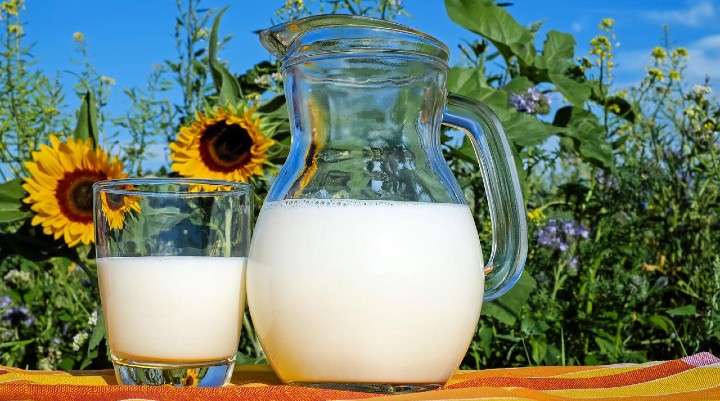
KU Medical Center News
KANSAS CITY, Kan. — Drinking three cups of dairy milk a day boosts an antioxidant that helps protect the brain from damage caused by aging. This is according to research published recently by the University of Kansas Medical Center faculty in the international journal Frontiers in Nutrition.
Just like an old car that rusts, the human brain becomes corroded over time by free radicals and other oxidants that are released as the brain converts nutrients into energy. This oxidative stress, as it’s called, is thought to be a major mechanism of brain aging. Drinking dairy milk may fight that rust.
The study, which asked one group of older adults to drink three cups of 1% milk a day and a control group not to change their consumption habits, found that drinking that much milk boosted the intervention group’s level of glutathione (GSH), a powerful antioxidant that helps protect the brain from some of the damage that accompanies aging and aging-related diseases. (The typical American adult over age 60 drinks less than two cups of milk per day, according to data from the Centers for Disease Control and Prevention.)
“It's exciting that something as simple as drinking milk can increase GSH because it’s not a drug, it’s just a simple food,” said Debra Sullivan, Ph.D., RD, professor and chair of the Department of Dietetics and Nutrition in the KU School of Health Professions at KU Medical Center and an author on the study. “And the three cups a day is actually what is recommended by the U.S. Dietary Guidelines.”
The study builds on work that Sullivan began over a decade ago with In-Young Choi, Ph.D. a lead author on the study and director of the Metabolic Imaging Unit and the Magnetic Resonance Science Program at the Hoglund Biomedical Imaging Center at KU Medical Center.
Sullivan approached Choi about collaborating and using her brain antioxidant scanning technique to measure how what people eat affects their brain. When they completed their first exploratory study, they were surprised by the results.
“I was thinking fruits and vegetables would be highly correlated with antioxidants in the brain,” remembered Choi. “But instead it was dairy, and among the dairy foods, it was milk. That was really surprising.”
The researchers then applied for and were awarded a grant from the National Dairy Council, which along with a National Institutes of Health (NIH) grant that funds the Hoglund Biomedical Imaging Center, supports their work. These funders have no input on the study design, data, the interpretation of the data or the writing the manuscript, Sullivan said.
In 2015, Choi and Sullivan and their team published an observational study in the American Journal of Clinical Nutrition that again found that milk was highly correlated with concentrations of GSH in the brain of older adults. The next step, the current study, was designed to see what would happen to someone’s brain if that person increased their milk consumption.
While there was no change in the levels of GSH in the brains of the participants in the control group, the group that drank three cups of milk a day saw their brain GSH levels increase by an average of nearly 5% overall and by more than 7% in the parietal region of the brain.
Choi noted that earlier findings have shown that GSH levels are lower in older adults about 10%. “So, by drinking milk, it looks like you can catch up some,” she said.
What remains to be discovered is the specific mechanisms by which milk increases levels of GSH in the brain. The researchers know this much: The GSH molecule is made of three amino acids—glycine, glutamate, and cysteine—and milk is a source of all three. Compared with other foods, the whey protein in milk has particularly high levels of cysteine, which is especially important for the body to make more GSH. Milk is also rich in riboflavin and calcium, which are required for GSH maintenance.
More research is needed to determine which of these factors are behind the increase in brain GSH levels. The researchers also plan to conduct a larger study as well as studies including cognitive tests to measure if milk is leading to measurable changes in brain function. They also want to determine if there is an optimal dose of milk and if the amount of milk fat matters.
In the meantime, Sullivan sees no reason to wait to make sure you’re getting your three cups of milk each day. “It’s important for your brain health, your bone health, your muscle health, all of those things,” she said. “That’s the takeaway.”





